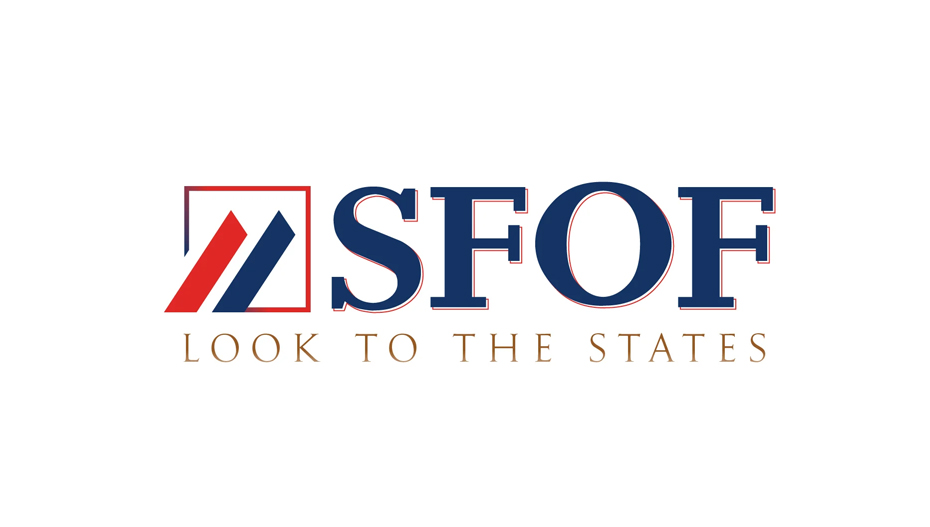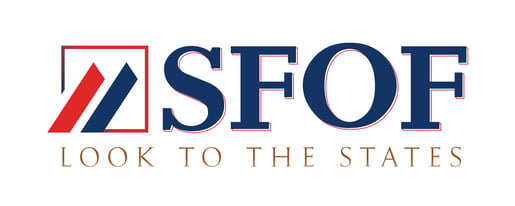About. Derek Kreifels is the CEO of the State Financial Officers Foundation (SFOF), the only nonprofit in the US that combines ground-breaking free-market research with a strong network of states’ treasurers, auditors, and other financial officers to actively sustain the health of each state’s economic outlook.
What is the origin story of the State Financial Officers Foundation (SFOF)?
SFOF was co-founded by eight state treasurers and me in 2012 while I was serving as assistant state treasurer of Kansas. Our first contribution was a $10,000 corporate gift. I worked at building the organization on my lunch breaks and a one-hour commute driving to and from work at the state capitol. The founding treasurers recognized they needed a venue to discuss how federal and state agency decisions were impacting the state’s financial bottom lines. We began by organizing two national meetings in the first year to discuss the issues that these state leaders were most concerned about. My wife, Melanie, helped organize the details and logistics for the conferences in the evenings with me.
Over the years, I recruited a dynamic and knowledgeable group of citizen leaders to serve on the SFOF board of directors, which has worked tirelessly to promote and encourage these men and women serving in these various state financial officer positions.
We advance research and take positions on various issues based on our mission to drive fiscally sound public policy by partnering with key stakeholders and educating Americans on the role of responsible financial management in a free market economy. We focus on six primary principles: Economic Freedom, Rule of Law, Federalism, Accountability, A Free Society, and Free Speech and Civil Discourse.
How would you describe the biggest problems you’re working to solve right now?
The biggest issue we’re facing today is the weaponization of capital, from “woke” banks refusing to do business with specific industries, to fund managers pushing a political agenda, to the government overstepping its reach. SFOF and its state officials are battling against a very well-organized, well-funded movement from the left involving huge federal agencies, regulatory bureaucrats, the White House, activist shell companies, big banks, and big fund managers. The left has created a very sophisticated ‘new branch’ of government that leverages corporations to make social change—a change that they know they can’t get passed in Congress or the courts.
What is ESG, and why is it such a threat?
For too long, ESG-based (Environmental Social Governance) investing has allowed those in power to use hardworking Americans’ money to pursue their political interests with little concern for their fiduciary duty or actual investment returns. They have relied on the average American as being either uninformed or misinformed about ESG and how it has insidiously and increasingly pervaded the finance, business, and government arenas.
In November, in front of representatives from over twenty-five media outlets in Washington DC, SFOF officially launched Our Money, Our Values—our unique initiative dedicated to educating and empowering Americans with the truth about ESG. Our Money, Our Values uses a multifaceted messaging approach to effectively show the American public that ESG has a direct, negative impact on them and their finances through a new website, social media, digital advertising, and compelling videos.
What should we know (that we probably don’t already know) about the different roles and responsibilities of state treasurers and auditors?
We have a saying at SFOF: “If you’ve seen one state treasurer’s office, you’ve seen one state treasurer’s office.” Each office varies based on state statutory duties and responsibilities. Some officials sit on a state pension board, while others act as the sole fiduciary of their state’s funds. Some manage 529 college savings accounts, and some do not. Most manage the state’s checkbook, and many have sole discretion to direct state banking contracts.
One important note: Several internal polls have shown that when it comes to state fiscal matters, state treasurers and state auditors are trusted nearly sixty-five percent of the time over their state’s governor or member of Congress. So, when it comes to state financial issues—even if the office doesn’t have a direct statutory role—these officials’ opinions are weighted heavily among policymakers.
SFOF and its members have been in the news a lot lately. What is the impact you’re having?
Pressure from one of our states caused US Bank to change its position on lending to coal and other fossil fuel-related projects. In December, Vanguard, the second largest fund manager in the world, managing just over $7 trillion, announced it was pulling out its membership from the FANZ (Financial Alliance for Net Zero)—a coalition of large banks and fund managers desperately trying to leverage their business position to push everyone around the world (with the exception of China, one of the world’s largest polluters) to a zero-carbon lifestyle.
What is one last thing prospective supporters of your mission should know about SFOF.
As we look to the future, SFOF is the premier free-market organization working with these state financial officials. Our reach has grown to represent thirty-five state financial officer members from twenty-eight states, and collectively, our states represent roughly $3 trillion in state assets. It’s more important than ever to reinforce and protect these trusted statewide elected offices and give them the resources they need to be a true check and balance on every tax dollar being processed through their office.
Today, the states in the US with the soundest financial condition and with the highest credit ratings are generally those that have been managed conservatively with small government, pro-growth policies. These results are the direct outcome of such policies promoted by SFOF.
“SFOF and its state officials are battling against a very well-organized, well-funded movement from the left involving huge federal agencies, regulatory bureaucrats, the White House, activist shell companies, big banks, and big fund managers.”
Derek Kreifels



